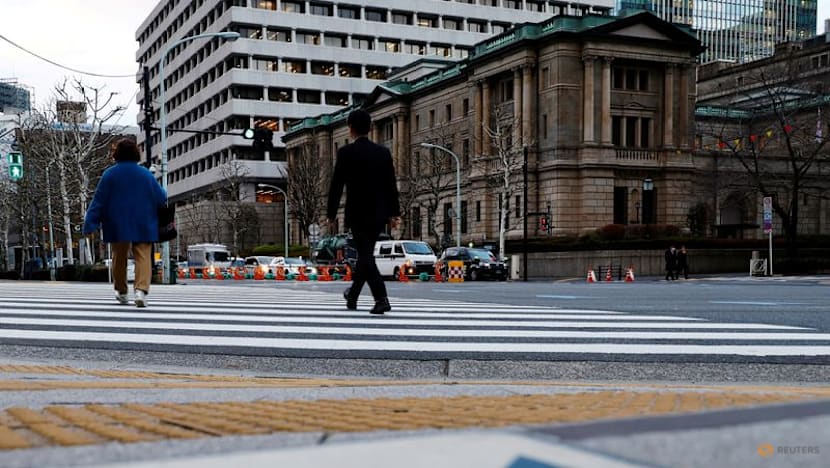Bank of Japan's Noguchi advocates gradual interest rate hikes

People walk in front of the Bank of Japan building in Tokyo, Japan January 23, 2024. REUTERS/Kim Kyung-Hoon
TOKYO/OITA, Japan :The Bank of Japan can resume interest rate hikes as risks from U.S. tariffs subside but must do so at a "measured, step-by-step" pace, its board member Asahi Noguchi said, stressing the need to tread cautiously in pushing up borrowing costs.
Noguchi warned that keeping real interest rates too low for too long could be detrimental to the economy, such as weakening the yen and fueling unwelcome rises in inflation.
The remarks follow those from Governor Kazuo Ueda and others in the nine-member board signaling the chance of an increase in the BOJ's policy rate as soon as next month.
They also come as the yen's recent slide to 10-month lows against the dollar triggered warnings of currency intervention, a sign of the administration's alarm over the weak currency's impact on import costs and broader inflation.
Although a weak yen helped boost exports and brought benefits when Japan was experiencing deflation, such benefits begin to fade as the economy approaches full employment and the output gap narrows, Noguchi said in a speech.
"As supply constraints intensify, the positive effects eventually disappear and are replaced by negative effects that merely push inflation higher than needed," he added.
At a press conference after the speech, Noguchi said underlying inflation - a key measure the BOJ considers in deciding how soon to raise rates - was approaching but still short of its 2 per cent target.
He added that further yen falls may keep food prices elevated and affect underlying inflation.
Raising interest rates would help tame inflation that has weighed on consumption, and won't contradict the government's goal to achieve strong economic growth, Noguchi said.
NEITHER TOO SLOW NOR TOO FAST
After exiting a decade-long, massive stimulus last year and raising interest rates to 0.5 per cent in January, the BOJ has put policy on pause to scrutinise the impact of U.S. tariffs.
As the hit from higher U.S. levies subsides, the BOJ can gradually raise rates again if the economy and prices move in line with its projections, Noguchi said.
For inflation to sustainably move around its 2 per cent target, the BOJ must ensure real wages stabilise around 1 per cent - a condition likely to be met sometime in the latter half of fiscal 2026 through fiscal 2027, he said.
With this time horizon in mind, the BOJ should move rates closer to levels deemed neutral to the economy at a pace that is neither too fast nor too slow, Noguchi said.
If the pace of rate hikes is too fast, it could hurt companies' wage-hike momentum and put the achievement of the central bank's 2 per cent inflation target further out of reach.
But rate hikes that are too slow risk destabilising economic activity and prices, he added.
"Japan is making steady progress toward achieving our price target," Noguchi said at the press conference, adding that labour union demands and surveys of corporate executives so far have heightened prospects of another bumper pay hike next year.
"The demerits of being too late in raising rates become bigger as inflation approaches our target," he said. "We're at a phase where we need to be extra careful to ensure we're neither too late nor too early in adjusting policy."
The BOJ next meets for a policy meeting on December 18-19, followed by another in January next year.
A Reuters poll showed a slim majority of economists expect the BOJ to raise rates next month. All of them project a hike to 0.75 per cent by March next year.
Japan's consumer inflation has exceeded the BOJ's 2 per cent target for well over three years. While the increase is driven largely by stubbornly high food prices, an intensifying labour shortage has also propped up wages.













